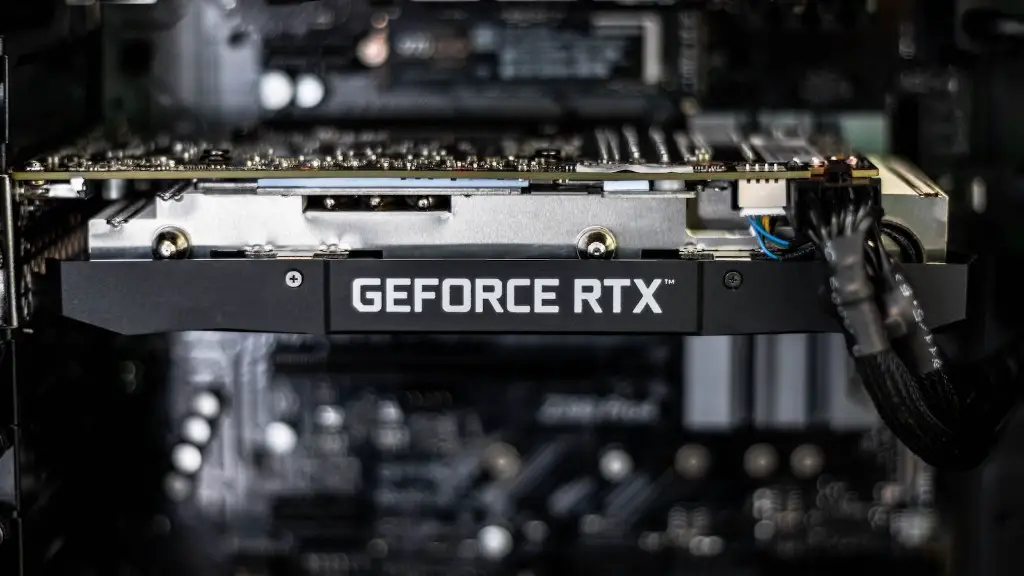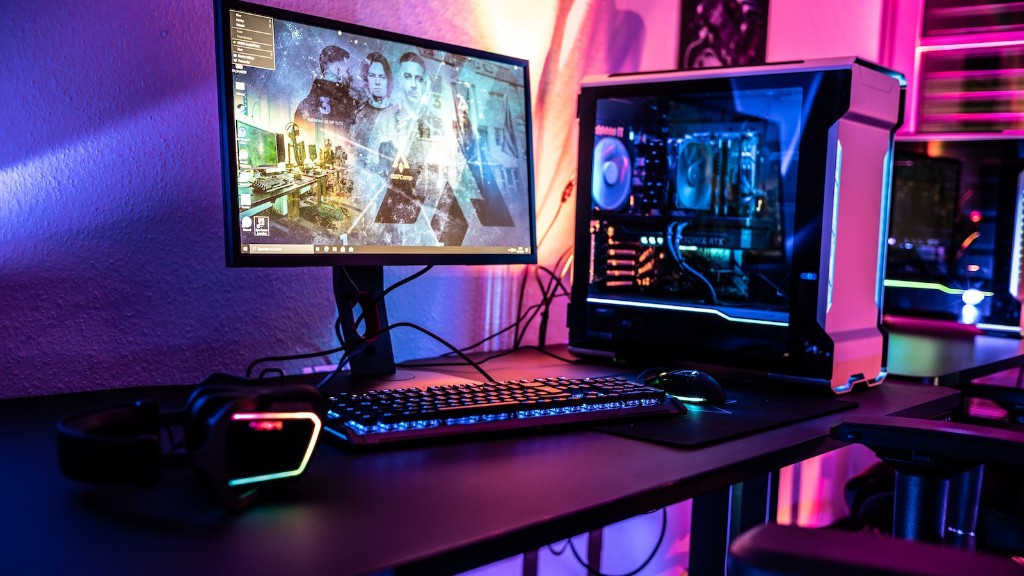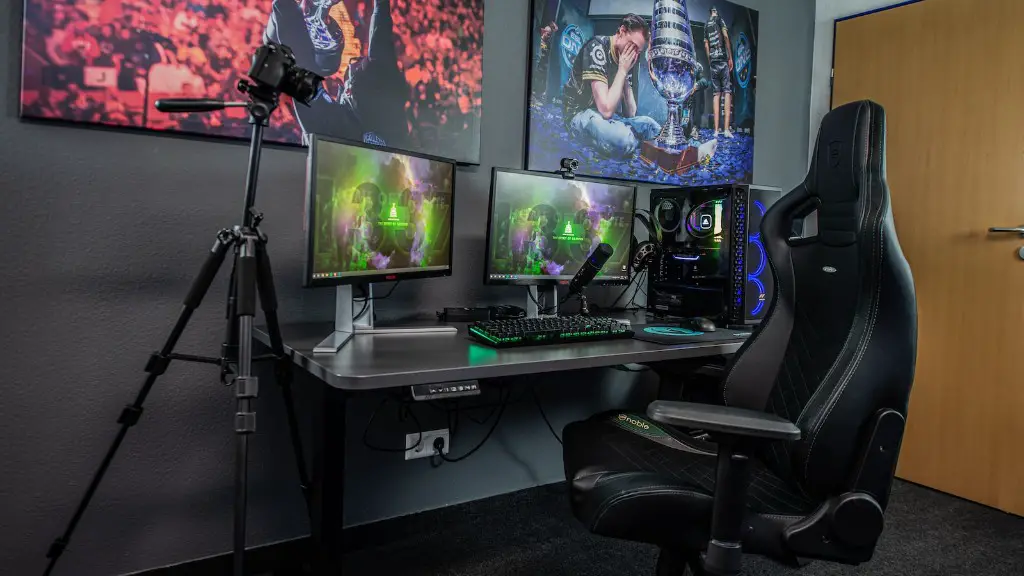500 Watts is often considered to be the minimum wattage needed to power a gaming PC, while higher wattage ratings are recommended to guarantee smooth gaming performance. But is 500 Watts really enough? There are a few factors to consider before making a final conclusion.
First off, the overall power requirement of a gaming PC depends on the components. A basic PC powered by a low-end processor, a single storage drive, and a low-end graphics card may not require more than 500 Watts. On the other hand, a more high-end build with a powerful processor, multiple storage drives, and a high-end graphics card will require a higher wattage to power the entire system.
It’s also important to factor in the performance expectations of the PC. A 500 Watt PSU may be sufficient for basic gaming, such as playing browser-based games and low-end titles, but running games that are more intensive in terms of power demand may require a PSU with more wattage. Furthermore, the higher the graphical settings, the higher the demand for power.
It’s also advisable to keep the future in mind. If the goal is to upgrade the gaming PC with more powerful components later on, a higher wattage power supply should be selected. That way, the wattage of the PSU can handle any future upgrades without replacing it.
Finally, the quality of the power supply’s components should be considered. Cheaper PSUs are often made from cheaper materials, which can cause a decrease in efficiency and stability. Those types of PSUs are less reliable and may not provide enough power for stable performance. High-end PSUs, on the other hand, provide better power efficiency, an overall better performance and are reliable for the long run.
Modularity
The modularity of a PSU is another factor to consider when selecting a gaming PSU. Modular power supplies allow users to customize the type and length of cables used in a build. This is a great option for those who want a clean-looking build, as less clutter of used cables can be a huge benefit. Additionally, this option can also reduce the amount of power draw, allowing the system to run more efficiently. Remember, the fewer cables and components used, the less the power draw will be, so be sure to select a power supply that is modular.
It’s also important to be aware that basic power supplies come with all the cables connected and ready to use, while modular ones may require some assembly. This is not a difficult process, but make sure to check the manufacturer’s instructions to avoid any damage to the components.
Overall, 500 Watts should be a great power supply for basic gaming rigs. However, for higher-end gaming PC setups, it may be better to go for a higher wattage. It’s important to consider the existing components, the PC’s performance expectations, and the possibility of future upgrades. Modular PSUs are a great way to reduce clutter and power draw, but do take a little extra effort to install. It’s up to the user to decide which option is best for their gaming PC.
Types
Another factor to consider when selecting a power supply for a gaming PC is the type of PSU. There are four main types of PSUs – ATX, SFX, TFX and Flex ATX – and the right type of PSU should be selected depending on the form factor of the chassis.
ATX PSUs are the most common type of PSU. They are larger, more powerful and more expensive than other types and are therefore better suited for mid- to high-end gaming PCs.
SFX PSUs, on the other hand, are smaller and lighter than ATX PSUs and are more suitable for small form factor builds. They are perfect for those looking for a compact gaming PC and don’t require a lot of power.
TFX power supplies are also smaller than ATX PSUs and are great for space-saving builds. They are designed for low- to mid-range gaming PCs and do not require a lot of power.
Finally, Flex ATX PSUs are the smallest and cheapest type of power supply and are ideal for small form factor and low-end gaming PCs. However, they are not very powerful, so they may not be suitable for more demanding gaming.
Options
When it comes to selecting a PSU for a gaming PC, there are numerous options available. Different brands, wattages, efficiencies, and form factors are a few of the things to consider when making a decision. To ensure the best quality and performance, it’s usually a good idea to purchase a high-end PSU from a trusted brand.
It’s also important to factor in cost. High-end PSUs, while more reliable and efficient, will be more expensive than basic and lower-end PSUs. Paying more upfront ensures a more dependable performance in the long run, but it’s ultimately up to the user to decide what’s best for their budget.
500 Watts should be able to power most basic and mid-range gaming PCs. However, more powerful systems, as well as gaming rigs that are expected to be upgraded in the future, will require more wattage. The type, quality and features of the PSU, as well as the user’s gaming experience expectations, all should be taken into consideration before making a decision.
Efficiency
The efficiency rating of a power supply is also worth considering. Efficiency ratings dictate how much of the input power (wattage) will be converted into usable output power for the system. A higher efficiency rating means that the power supply will be better able to convert the input wattage into free output power. That can reduce the amount of electricity costs associated with the system.
Most power supplies will come with an efficiency rating of between 80-90%, with newer models being rated higher. It’s important to be aware that some power supplies may not meet the rated efficiency level. That’s why it’s best to purchase a PSU from a well-known and reliable brand.
PSUs that are rated at 80+ Gold and higher are ideal for gaming rigs, as they will provide more efficient power conversion and better performance. However, keep in mind that these efficient PSUs will cost more than their lower-rated counterparts.
When it comes down to it, 500 Watts is a great power supply for basic gaming rigs. Higher-end systems, as well as systems that are expected to be upgraded, will benefit from a higher wattage PSU. It’s also important to consider the overall quality of the PSU, as well as its efficiency rating. With so many different options available, it’s important to decide which features are right for your gaming PC.
Design
The physical design of a power supply is also worth considering when selecting a PSU for a gaming PC. While the overall design may not affect performance, it can still be an important factor. Some important design criteria to consider include the size of the PSU, the fan size, and the airflow design of the unit.
PSUs come in a variety of sizes, with ATX units being the most common for gaming PCs. The size of the PSU is important as it affects the amount of space needed for the PC. For example, a large PSU may not be able to fit into a small form factor chassis.
The fan size is also important, as it determines how much noise the PSU will make. If noise is a concern, then a unit with a larger fan is recommended as it will produce less noise. In addition, it’s also important to consider the airflow design of the PSU. Look for units that have more open designs, as those will provide more efficient cooling and better airflow.
Finally, the aesthetics of the power supply should also be considered. While this is more of a personal preference, it can still be important to those who want their gaming PC to look its best. There are many options available, from simple black designs to more striking colors and unique designs.
When choosing a power supply for a gaming PC, it’s important to consider the wattage, type, quality, features, cost and design. 500 Watts should be enough for most basic and mid-range gaming rigs, but higher wattages may be required for higher-end rigs. It’s also important to factor in the efficiency rating and design of the unit, as those can improve the overall performance of the system. With so many options available, it’s up to the user to select the perfect power supply for their gaming PC.



